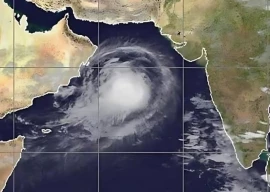
The Maoists, who fought a 10-year battle against the state before entering politics and winning elections in 2008, say that as the largest single party in parliament they should lead the government.
They have put forward Pushpa Kamal Dahal, who goes by the name of Prachanda, meaning “the fierce one”, for the leadership contest. He served as prime minister after the 2008 vote but quit in May 2009 over a row with the army.
He will face competition from Ram Chandra Paudel, vice chairman of the second-biggest party, the Nepali Congress, and veteran communist leader Jhala Nath Khanal from the Communist Party of Nepal-Unified Marxist Leninist (UML).
Observers say Prachanda will struggle to get a majority because other parties are reluctant to back the Maoists until they offer a timed commitment to dismantle their army camps and return property seized during the civil war.
Yogesh Bhattarai, a UML leader, claimed his party had secured Maoist support for their candidate, Khanal, which could result in a new hard-left Maoist-UML coalition.
“They have given us their word to support our chairman in the prime minister’s election,” Bhattarai told a news agency.
An inconclusive outcome to the parliamentary session was also a possibility. “It’s highly likely that we will not have any prime minister today since the votes are going to split,” said Nepali Congress spokesman Arjun Narsingh KC.
“However, we claim to lead the government as both the parties have already failed and we are the only ones untested,” KC said.
The impoverished republic has been in a political limbo for three weeks since the government collapsed after the sudden resignation of former UML prime minister Madhav Kumar Nepal on June 30.
The former leader headed an unwieldy 22-member coalition government that excluded the Maoists and was seen as weak from the start.
Nepal’s parliament, or Constituent Assembly, was elected in 2008 with a two-year mandate to complete the peace process and draft a new national constitution. But it has failed to complete either task on time, hampered by fierce disagreements between the Maoists and their political rivals.
Its term had been due to end on May 28, leaving the country without a functioning legislature, but lawmakers voted to extend it for another year to allow them time to complete the constitution.
Published in The Express Tribune, July 22nd, 2010.







1732954110-0/Untitled-design-(13)1732954110-0-270x192.webp)

1732952041-0/Untitled-design-(12)1732952041-0-270x192.webp)







COMMENTS
Comments are moderated and generally will be posted if they are on-topic and not abusive.
For more information, please see our Comments FAQ